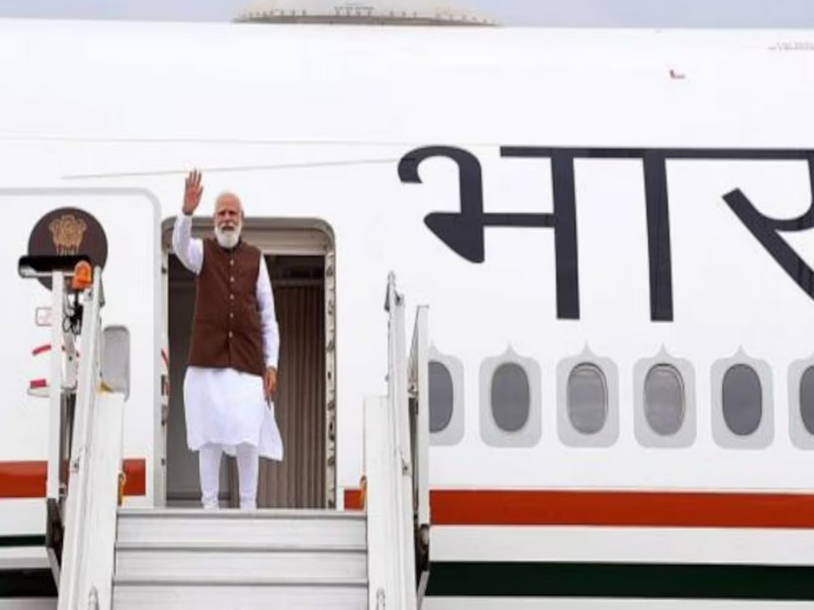The Prime Minister’s visit to France has added significant value to the ongoing momentum in India-France strategic partnership.
New Delhi
India’s increasing role in global affairs and its ambition to assume responsibilities and lead in every front is getting reflected in the way its foreign policy orientations are being unfolded. India has never searched for parity with great powers but shown its willingness to become a part of the solution to global problems. There is no denying the fact that India has occupied a centre stage in global politics where the rest of the world has been looking towards India for enhancing cooperation. The Prime Minister of India has changed the global perception of India through a proactive approach of bringing India on the global radar screen. The shift from political diplomacy to economic
Prime Minister Modi’s recent visit to France is one such example of India’s commitment to explore and further its interest through bilateral cooperation. Moreover, it was an honour for India that Prime Minister Modi was invited as a guest of honour for the Bastille Day celebrations by the President of France, Emmanuel Macron. It shows how France attaches importance to India in the changing dynamics of geopolitics. France believes that a strong relationship with India will yield dividends in much more concrete terms. The year 2023 has also marked the 25th anniversary of India-France strategic partnership. Hence, the visit also gained salience in this regard.
Prime Minister Modi was also conferred with the prestigious “Grand Cross of the Legion of Honour”, which has reflected France’s intention to nurture its relationship with India in a broad-based manner. Both leaders held extensive discussions on a wide range of areas of bilateral cooperation. Coming out with “Horizon 2047” was nothing but their shared goals and priorities. Horizon 2047 has charted out the future of India-France strategic partnership and is an indication of a robust bilateral commitment in strengthening the ongoing relationship.
It must be emphasised here that as of now, India-France relationship, especially in the economic sphere, is much below their potential. France is India’s 11th largest foreign investor, and bilateral trade in 2022 stood at only US$16 billion. There are a number of areas which would require a special focus by both the countries. The bilateral discussions centred on a number of areas including the need to boost ties in trade and commerce, energy transitions, protecting environment, educational collaboration, railways network, digital public infrastructure and more importantly people to people ties.
How India can work with France in the ongoing energy transitions from the use of fossil fuel to renewables and learn from French experiment of using nuclear as the major source of energy formed a major part of the discussion. In the ongoing energy transition, India has shown to the world how it has followed the Paris Protocol much before the deadline articulated in the context of becoming less dependent on the use of fossil fuel, which should be less than 60% by 2030. India has achieved this target in December 2022—eight years before deadline. France certainly can help India in increasing its nuclear component, which remains a constant and is roughly 2% in its energy security basket. On the other hand, France has the highest share of nuclear energy generation in the world. Though India has signed nuclear agreements with Areva of France, which produces 1600 Mwe nuclear reactors, but the tangibles are yet to be witnessed. The problem lies with India’s domestic constituents in terms of finding the locations for constructing nuclear reactors in India. France has shown renewed commitment in the civil nuclear cooperation with India.
Digital public infrastructure is one another area where India and France can work together. If India has to become a “digital India”, it has to find ways and mechanism to remain all the time invulnerable from cyberattacks. There will certainly be a win-win situation in this regard because protection and security of critical infrastructure remains a part of the challenges across nation states.
The discussion on probable educational collaboration also featured prominently. India would require to capitalize on the provision of the National Education Policy (NEP 2020) to offer dual degrees and work closely with France’s educational institutions. India is also looking for enhancing S&T collaboration with France.
India realises that people to people ties help understand each other’s perspectives better. Hence, the role of the Indian diaspora becomes significant. Although the Indian diaspora in France shows their allegiance to India, in terms of tangibles nothing is visible. How the Indian diaspora can start making investments in India, which in turn can add value to the ongoing transformation formed a part of the discussion.
PM Modi’s interaction with the President of the French National Assembly, Yael Braun Pivet also reflected the shared values of democracy, liberty, equality and fraternity. How India and France can work together and increase cooperation between the two Parliaments formed a major part of the discussion. It would certainly be useful in sharing the experiences, which in turn can strengthen the functioning of Parliament.
Though the tangibles may not be witnessed in the current context, the expectations from both sides have increased and that perhaps will be the key in moulding the future course of action. The Prime Minister’s visit to France has added significant value to the ongoing momentum in India-France strategic partnership.
Dr Arvind Kumar is Professor at School of International Studies, Jawaharlal Nehru University, New Delhi.

